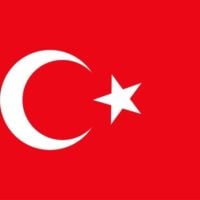Deadline: 5-Mar-23
World Health Organization (WHO) is inviting research team(s) working in the field of maternal, newborn and child health, nutrition and infectious diseases with proven expertise in implementation of high-quality large intervention studies to submit an Expression of Interest (EOI).
The WHO Department of Maternal, Newborn, Child and Adolescent Health and Ageing (MCA) has been invited to submit a research grant proposal to the Bill & Melinda Gates Foundation for a multicountry research study to examine the effect of probiotics in the first 6 months of life among preterm, term small for gestational age (SGA) and term appropriate for gestational age (AGA) infants with poor growth . WHO is seeking collaboration with research teams to develop and submit the grant proposal.
Proposed objectives, design and setting
- The overall aim of this research is to assess the effect of probiotics in breastmilk fed infants on mortality, morbidity, and growth in the first 6 months of life.
- The research will assess effects of probiotics in three populations:
- Preterm babies;
- Term SGA babies; and
- Term AGA babies with poor growth (often called ‘growth concern’).
- The proposed research is a set of three double blind placebo controlled individually randomised and individually powered trials. Infants will be enrolled after birth in hospitals and followed up at home.
- In trial 1 – preterm babies (< 37 weeks gestation) will be randomised soon after birth to receive probiotics or placebo daily for 4 weeks and followed up daily in hospital then 2-weekly at home until they reach 6 months of age. Primary outcomes will be mortality, severe infection and underweight by 6 months of age.
- In trial 2 – term SGA babies will also be randomised soon after birth to receive probiotics or placebo daily for the next 4 weeks and followed up daily in hospital then 2-weekly at home until they reach 6 months of age. Primary outcomes will be severe infection and underweight by 6 months of age.
- In trial 3 – term AGA babies will be kept under 2-weekly growth surveillance from birth. Those who reach criteria for poor growth will be randomised to receive probiotics or placebo daily for the next 4 weeks and followed up until they reach 6 months of age. The primary outcome will be underweight at 6 months of age.
- The probiotic and placebo supplements will be procured centrally by WHO. The intervention will be provided to the infants by the study team daily either in health facilities or at home.
- They expect final sample sizes, across 4-6 sites over 18-24 months, of approximately 8000 preterm, 6000 term SGA, and 1600 term AGA infants with growth concern (total across all sites). These estimates are approximate and will depend on the baseline prevalence of morbidities and poor growth in the study populations.
- The research will be conducted in sites with high burden of prematurity, SGA, and infant mortality, morbidity and poor growth in WHO African, Eastern Mediterranean and South-East Asian regions.
- Sufficient sites and hospitals will be chosen to ensure geographic diversity and the required sample size.
- Procedures for ascertainment of gestational age will be decided prior to the trial development but will not necessarily require antenatal surveillance.
- All three of the trials will be conducted at each site and must be included in the EOI that is submitted.
Request for Expressions of Interest (EOI)
- WHO coordinated multi-country trial to evaluate the efficacy of probiotic formulations in improving mortality, morbidity and growth of vulnerable infants.
- Vulnerable infants (preterm infants, small for gestational age (SGA) infants and infants less than 6 months of age with poor growth) have unacceptably high mortality, morbidity and long-term neurodevelopmental disability, especially in low and middle-income countries.
- World Health Organization (WHO) guidelines for the care of preterm or low birth weight (LBW) infants include a conditional recommendation for the use of probiotics in infants < 32 weeks gestation or < 1.5kg at birth. Evidence was of low certainty and research on target group, impact, dosing and duration was strongly recommended by the guideline development group (GDG).
Eligibility Criteria
- The research will be based in WHO African, Eastern Mediterranean and South-East Asian regions.
What will happen after the closing date for submission of Expressions of Interest?
- The received Expressions of Interest will be screened by the WHO team for eligibility. The eligible EOIs will be reviewed and scored by a panel of independent external reviewers. The final selection of the teams will be made by WHO considering the scores received from the external reviewers. The following criteria will be used in the selection process:
- How relevant is the proposed research study to the country?
- Is the proposed research site suitable for the study including, availability of study population, burden of disease, previous trials conducted in the site, community engagement?
- What is the capacity of the research team for conducting this study?
- What is the previous experience of the research team in implementing large scale highquality hospital and community-based intervention studies with minimal loss to follow up?
- Is there a demonstrated engagement of the research team with the hospitals and communities in which the research is proposed to be conducted?
- Is there high-quality on-site data management capacity?
- Is the principal investigator a resident in the country where the research is proposed?
For more information, visit WHO.









































